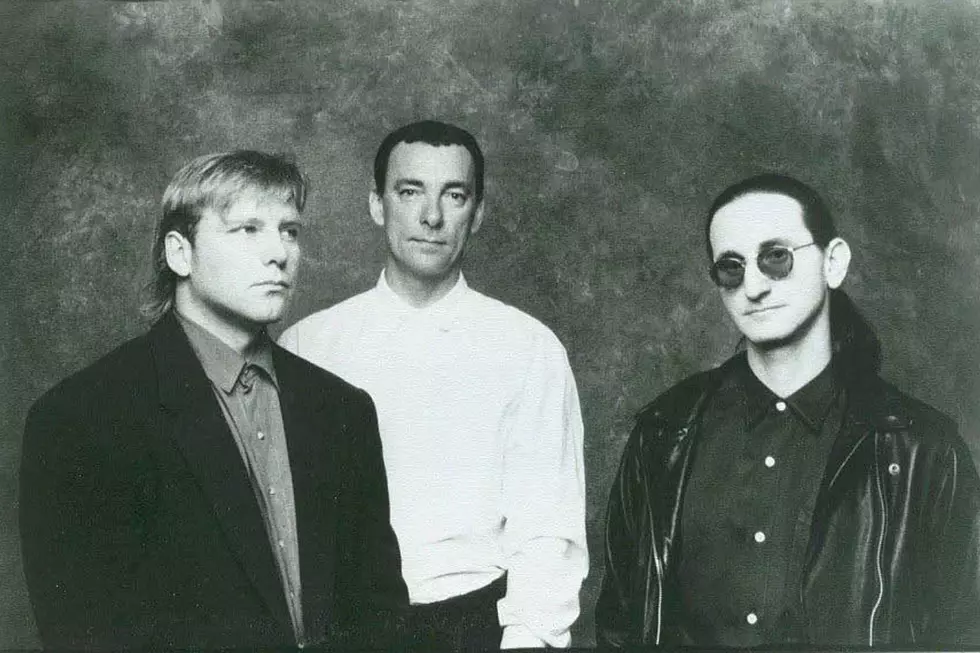
How a Renewed Focus on Guitar Gave Rush a New Start on ‘Roll the Bones’
As the '80s drew to a close, Rush were gradually been moving away from the keyboard-dominated sounds they had so embraced earlier in the decade. With 1989's Presto, they began to put the guitar back to the front of their sound, much to delight of older fans. That path became even more focused with Roll the Bones, which was released on Sept. 3, 1991.
"The album is kind of based on the concept of chance," Geddy Lee said in a 1991 interview. "The way it affects our lives in obvious and not-so-obvious ways," and calling it "a new beginning" for the band. It's obvious from the start of "Dreamline" that the band were invigorated, and though keyboards are still in the mix, the guitar is back where it should be, especially when Alex Lifeson lets loose with a blistering solo mid-song.
"I'm pleased with the way the band has been able to streamline the sound over the past couple of records," Lee told U.S. Rocker upon the album's release. "I think it's a positive change. I'm also pleased with the way we've been able to utilize a stronger sense of melody and vocal harmony."
The title cut featured a surprise for fans, a "rap" section, performed by Lee, who had his voice electronically altered. In hindsight, it has less to do with rap music of the era, playing out with an almost sci-fi meets beatnik vibe. Ultimately, the song's lyrics zero in on common concerns and questions, with the semi-existentialist coupling, "Why are we here? Because we're here!"
Listen to Rush's 'Roll the Bones'
Lyricist/drummer Neil Peart was constantly revamping his approach to lyric writing. "It is the ultimate statement in spite of all these questionings and thinking about contingency and the accidents that can happen in life," summed up Peart on the idea behind the lyric. "You can't remain sort of helpless facing a universal futility; you gotta do something, really. Either do something or not do something, so I thought, choose the risk, choose the adventure."
"I think that it's a credit to Neil that he has been able to go from being a writer of broad abstractions, to being a writer of personal abstractions," Lee added. "Adding his point of view, and not being afraid to talk about some of his inner feelings has been a bold step for him."
Though "Face Up" and "The Big Wheel" are both straight-ahead guitar-centered rockers, they are still covered in that overly glossy '80s production style. "You Bet Your Life" ends the album on a very upbeat, powerful, and melodic note. The path from high gloss to harder edged sounds would be complete with 1993's Counterparts.
Roll the Bones was another big hit for Rush, reaching No. 3 in the U.S. and Top 10 in the U.K. and going on to sell more than a million copies. "This album had a real flow to it, a real strong, effortless flow," recalled Lee. "We spent a long time writing, probably longer than we've ever spent writing. We spent 10 weeks writing and rehearsing, which is probably why the recording went so quickly."
Top 50 Progressive Rock Albums
The Rush / Metallica Team-Up That Slipped Away
More From Rock 96.7



![Tornado Touches Down Near Daniel Wyoming [PHOTOS]](http://townsquare.media/site/102/files/2016/09/TornadoFeaturedIMG_AmberMcCreath.jpg?w=980&q=75)




